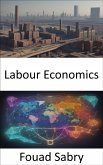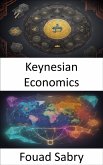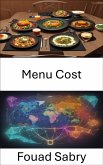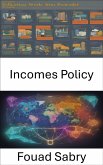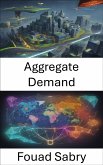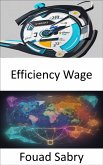What is Macroeconomic Model
A macroeconomic model is an analytical tool designed to describe the operation of the problems of economy of a country or a region. These models are usually designed to examine the comparative statics and dynamics of aggregate quantities such as the total amount of goods and services produced, total income earned, the level of employment of productive resources, and the level of prices.
How you will benefit
(I) Insights, and validations about the following topics:
Chapter 1: Macroeconomic model
Chapter 2: Macroeconomics
Chapter 3: Rational expectations
Chapter 4: New Keynesian economics
Chapter 5: Monopoly profit
Chapter 6: Fiscal policy
Chapter 7: Phillips curve
Chapter 8: Nominal rigidity
Chapter 9: Lucas critique
Chapter 10: Representative agent
Chapter 11: Economic model
Chapter 12: Computational economics
Chapter 13: Demand for money
Chapter 14: Dynamic stochastic general equilibrium
Chapter 15: Microfoundations
Chapter 16: Neoclassical synthesis
Chapter 17: History of macroeconomic thought
Chapter 18: Jacques Drèze
Chapter 19: Large-scale macroeconometric model
Chapter 20: Heterogeneity in economics
Chapter 21: Moral hazard
(II) Answering the public top questions about macroeconomic model.
(III) Real world examples for the usage of macroeconomic model in many fields.
Who this book is for
Professionals, undergraduate and graduate students, enthusiasts, hobbyists, and those who want to go beyond basic knowledge or information for any kind of Macroeconomic Model.
A macroeconomic model is an analytical tool designed to describe the operation of the problems of economy of a country or a region. These models are usually designed to examine the comparative statics and dynamics of aggregate quantities such as the total amount of goods and services produced, total income earned, the level of employment of productive resources, and the level of prices.
How you will benefit
(I) Insights, and validations about the following topics:
Chapter 1: Macroeconomic model
Chapter 2: Macroeconomics
Chapter 3: Rational expectations
Chapter 4: New Keynesian economics
Chapter 5: Monopoly profit
Chapter 6: Fiscal policy
Chapter 7: Phillips curve
Chapter 8: Nominal rigidity
Chapter 9: Lucas critique
Chapter 10: Representative agent
Chapter 11: Economic model
Chapter 12: Computational economics
Chapter 13: Demand for money
Chapter 14: Dynamic stochastic general equilibrium
Chapter 15: Microfoundations
Chapter 16: Neoclassical synthesis
Chapter 17: History of macroeconomic thought
Chapter 18: Jacques Drèze
Chapter 19: Large-scale macroeconometric model
Chapter 20: Heterogeneity in economics
Chapter 21: Moral hazard
(II) Answering the public top questions about macroeconomic model.
(III) Real world examples for the usage of macroeconomic model in many fields.
Who this book is for
Professionals, undergraduate and graduate students, enthusiasts, hobbyists, and those who want to go beyond basic knowledge or information for any kind of Macroeconomic Model.
Dieser Download kann aus rechtlichen Gründen nur mit Rechnungsadresse in A, B, BG, CY, CZ, D, DK, EW, E, FIN, F, GR, H, IRL, I, LT, L, LR, M, NL, PL, P, R, S, SLO, SK ausgeliefert werden.




